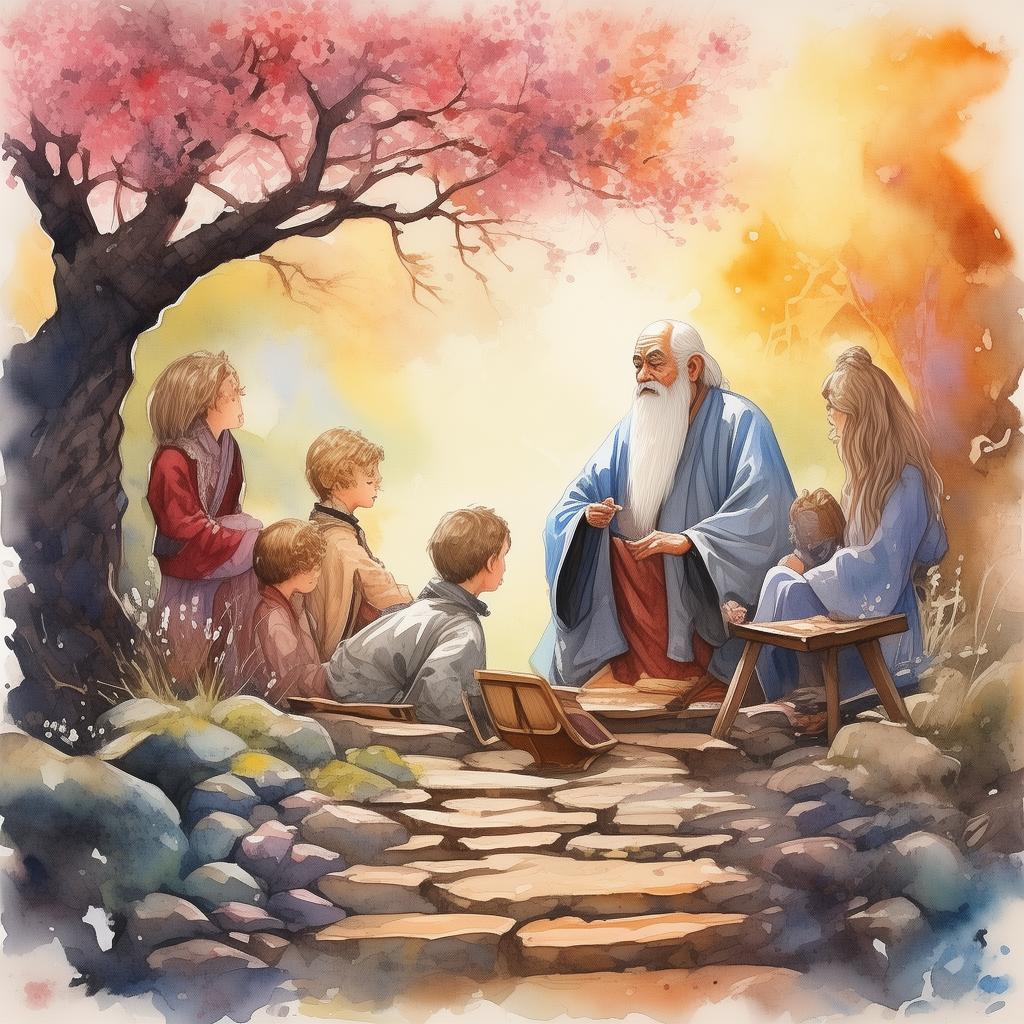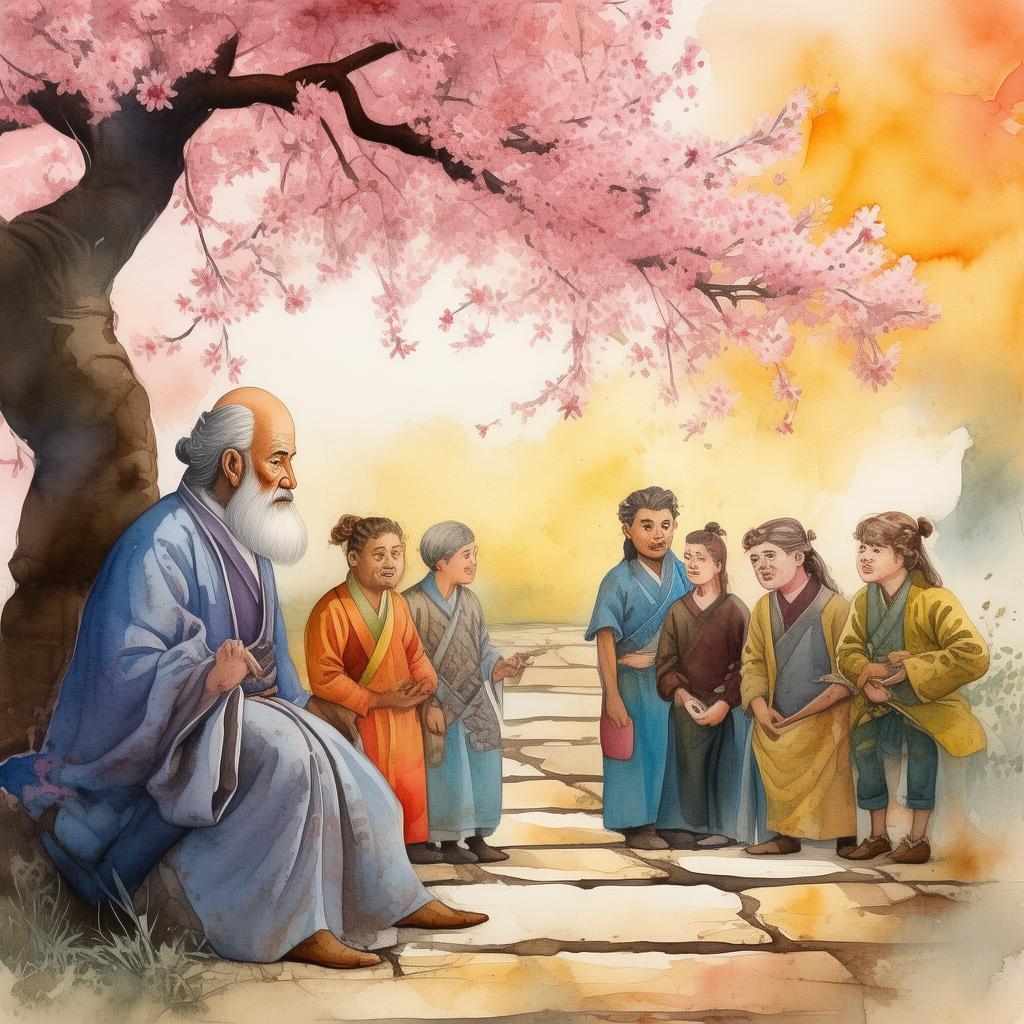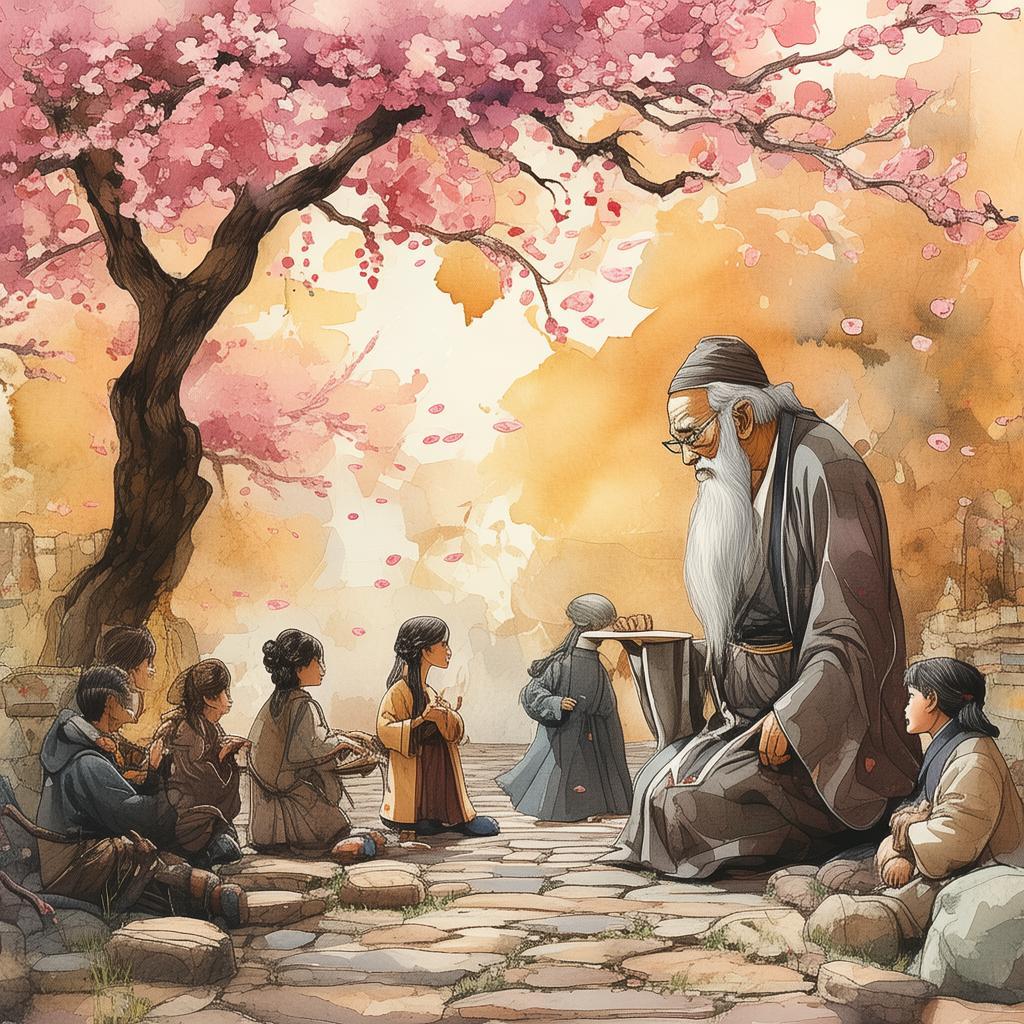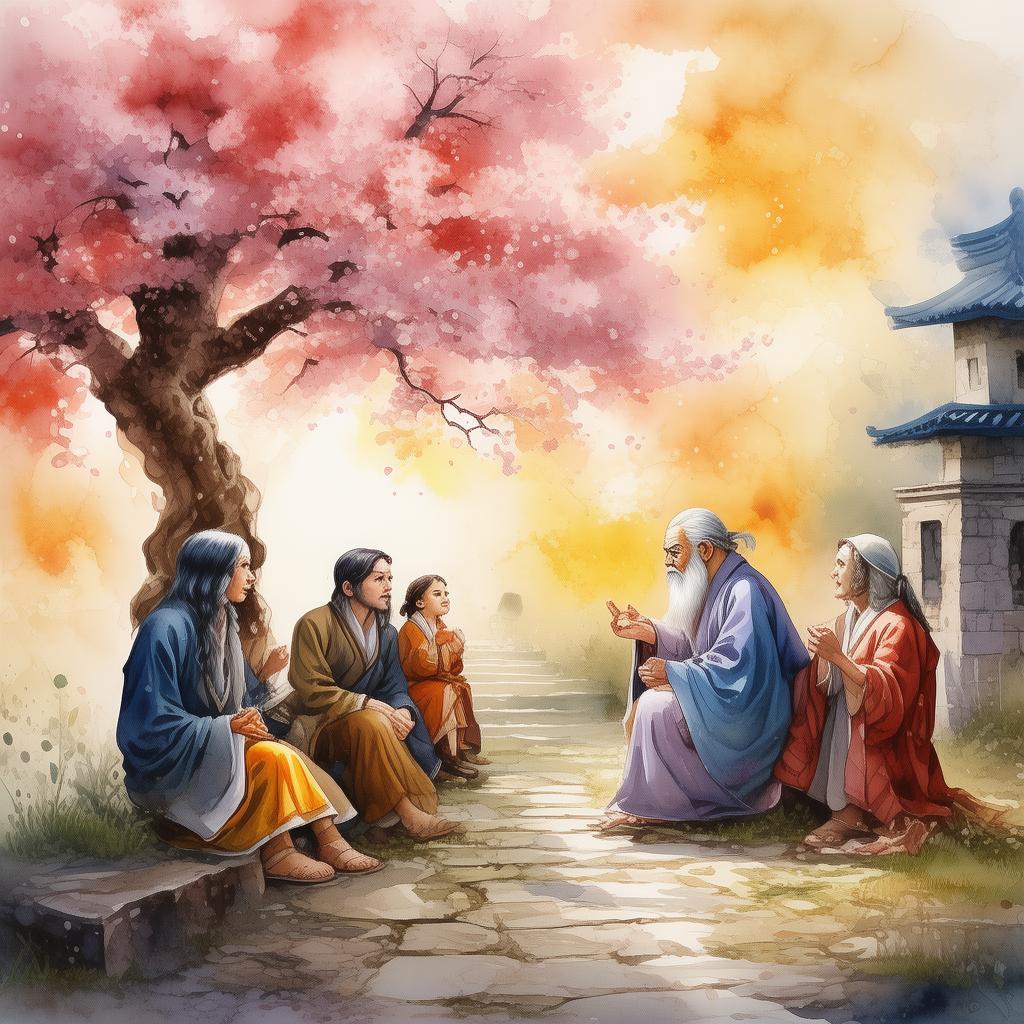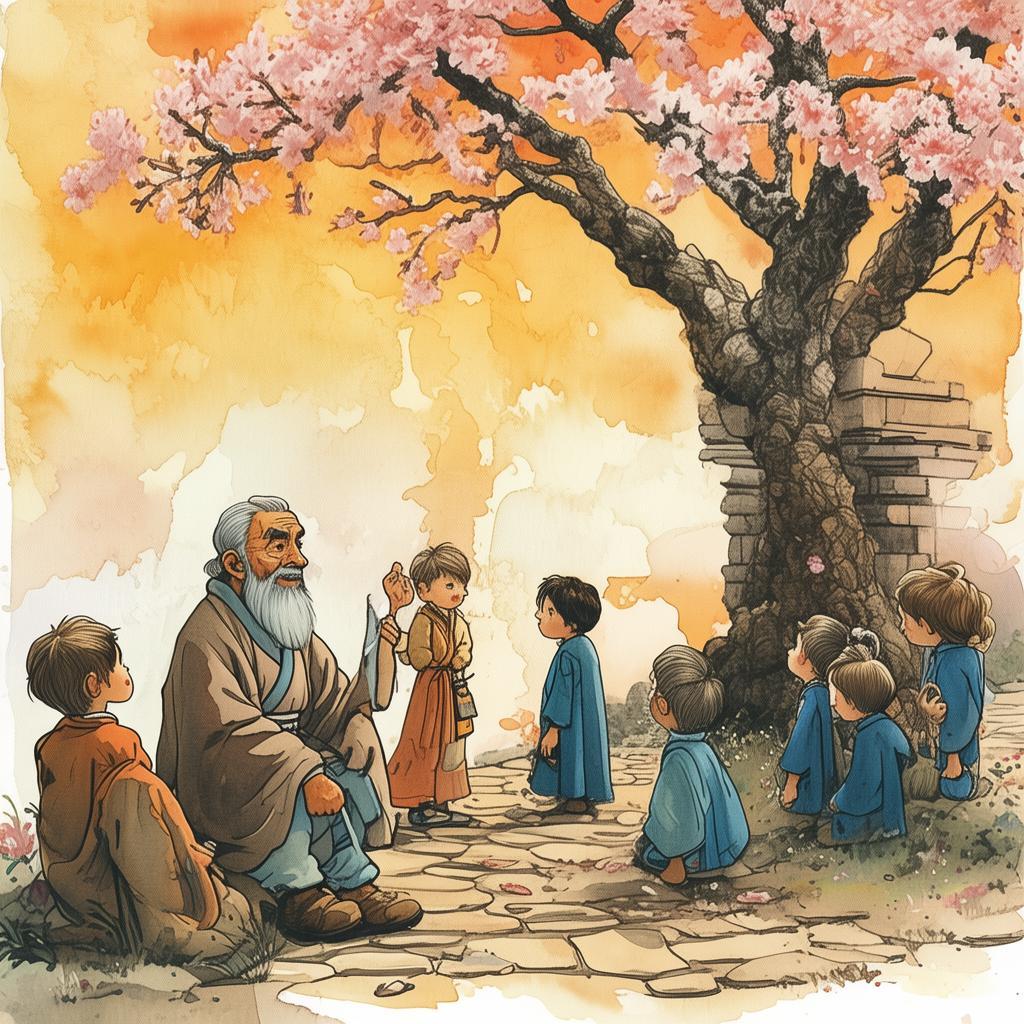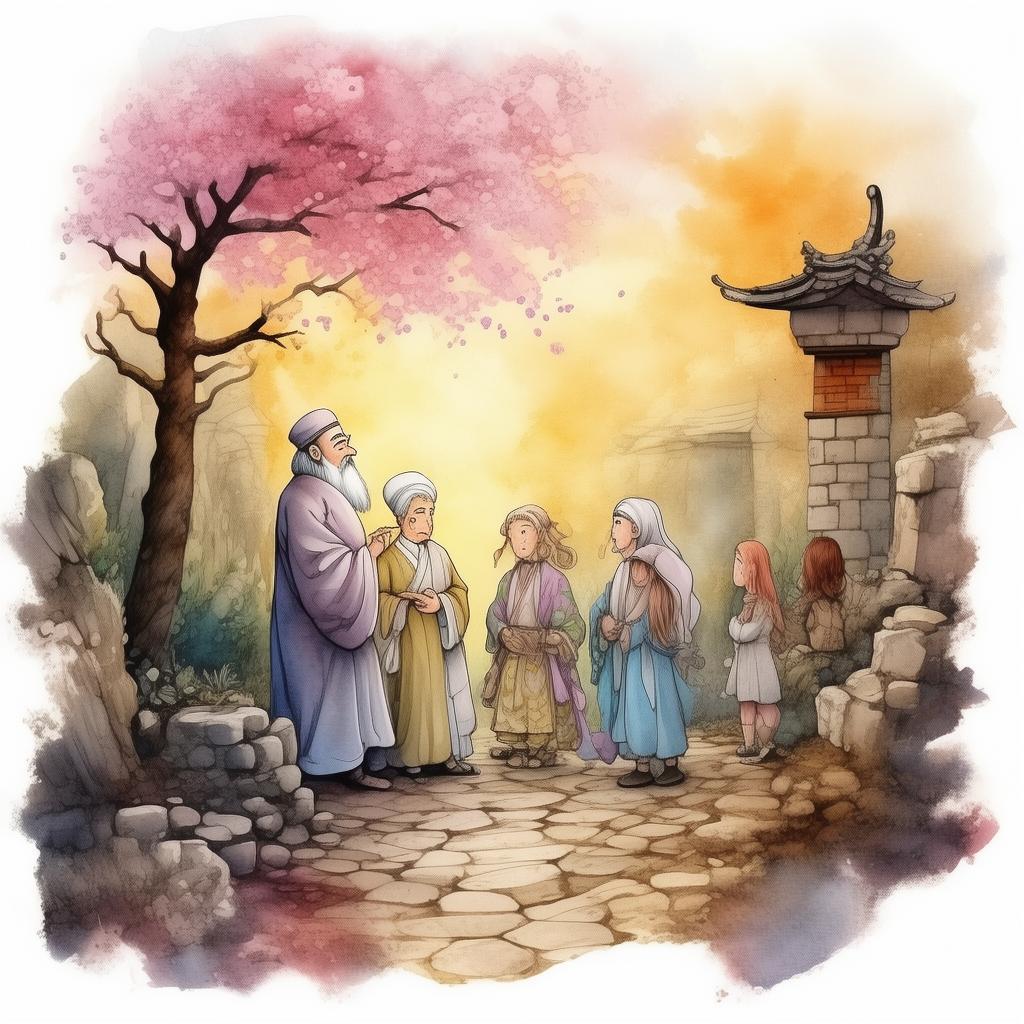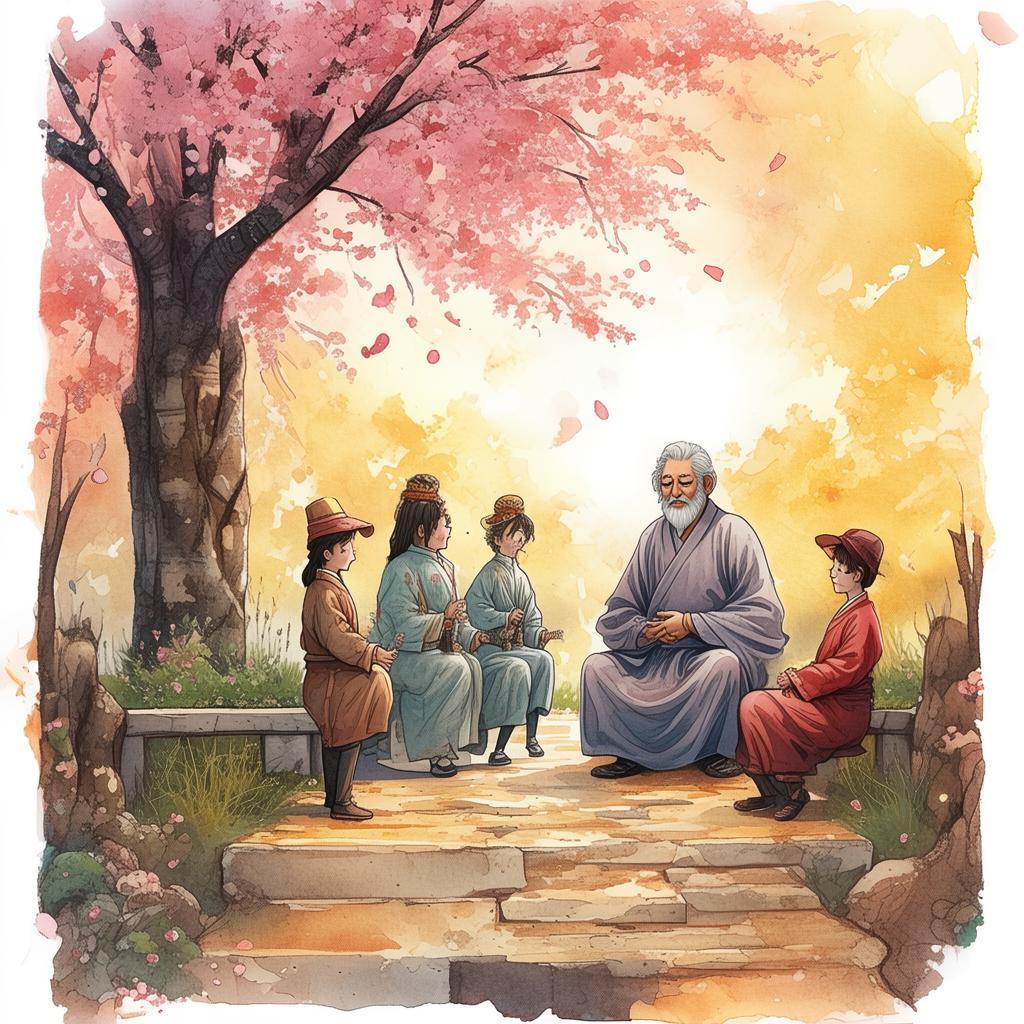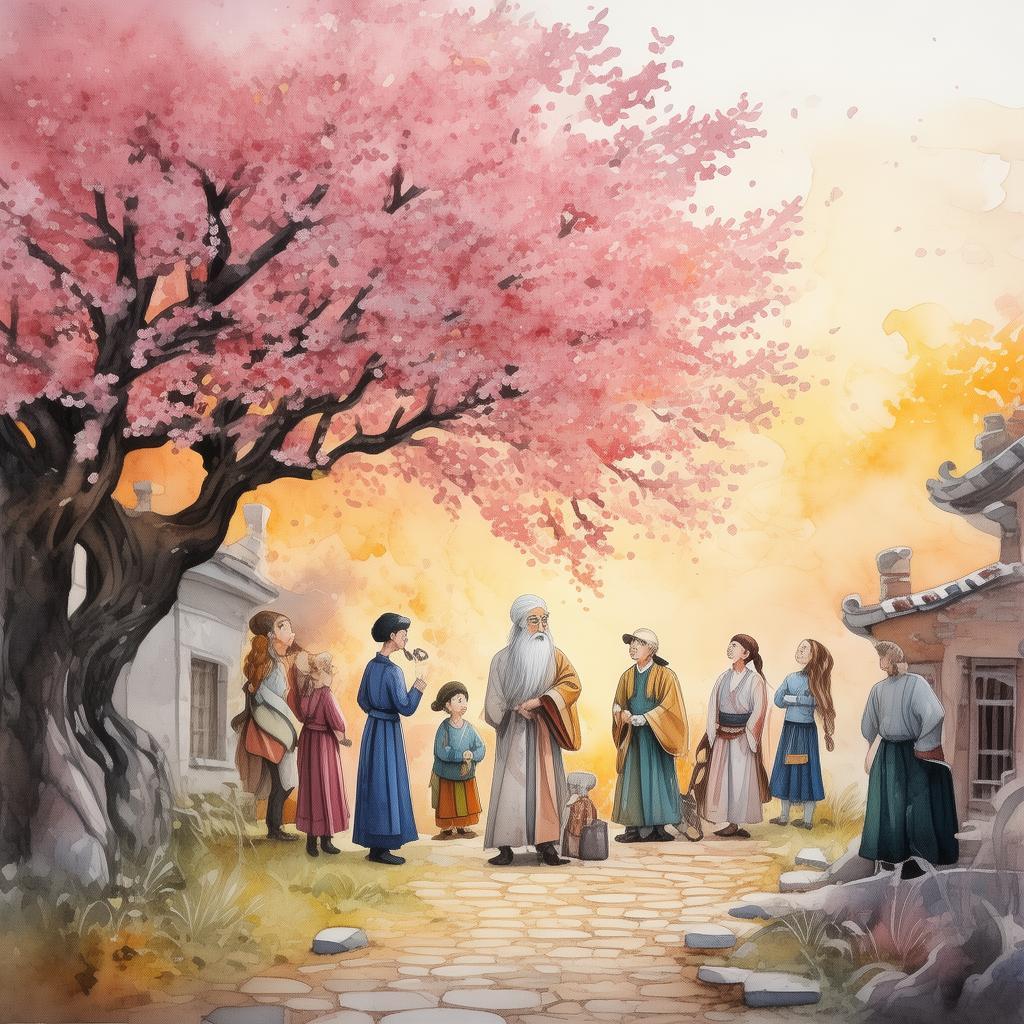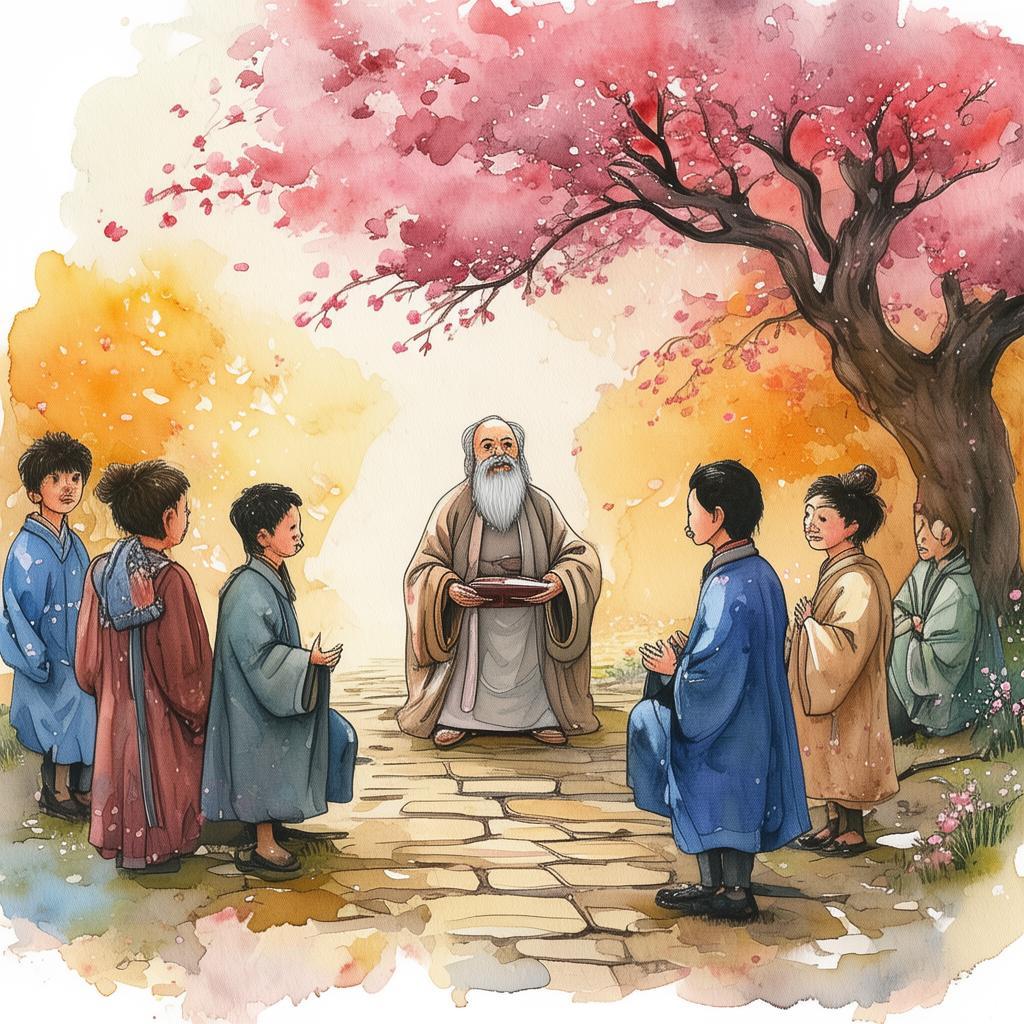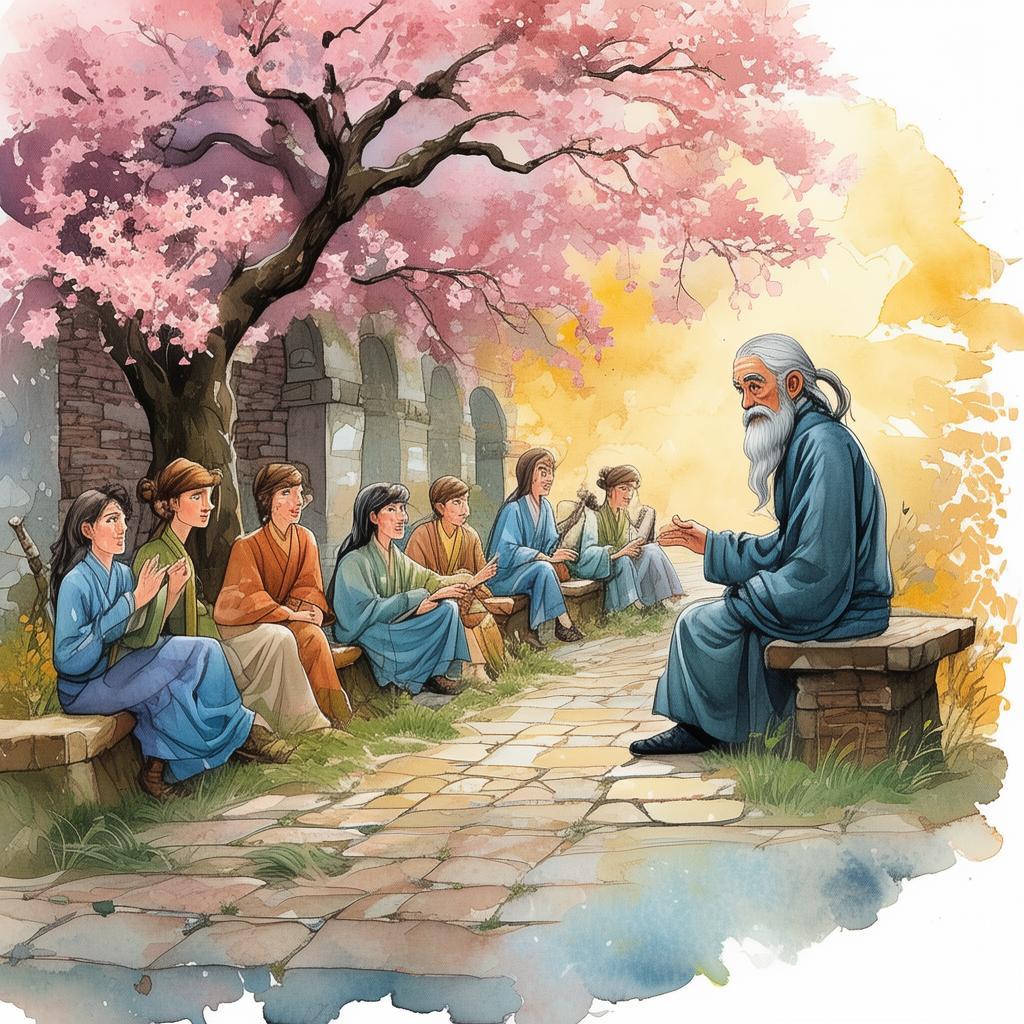The Straw Oracle: A Prophecy of the Fields
In the heart of the verdant fields of Liangshan, there lay a small, unassuming village known for its tranquil beauty and the gentle ways of its inhabitants. The villagers were a close-knit community, bound by a common respect for the land and each other. It was a place where the seasons painted the landscape with a tapestry of colors, and the people lived in harmony with nature.
One day, as the autumn leaves began to turn and the harvest season approached, a peculiar event unfolded. A figure, made entirely of straw, was found in the middle of the village square. It was a life-sized depiction of a person, with intricate details that seemed almost lifelike. No one knew who had created it, or why it had been placed there.
The villagers were bewildered but curious. Word spread quickly, and soon the entire community gathered around the figure. It was then that an old man, known for his wisdom and keen insight, stepped forward. He was the village elder, Grandpa Li, and he had a reputation for understanding the whispers of the earth and the secrets of the fields.
“Fellow villagers,” Grandpa Li began, his voice steady and calm, “this straw figure is no ordinary creation. It is a message from the fields, a prophecy that we must all heed.”
The villagers listened intently, their eyes wide with a mix of fear and wonder. Grandpa Li continued, “The figure predicts a great event that will come to pass in our village. A decision will be made, and it will determine the fate of many.”
As the days passed, the villagers were unable to shake the feeling that something momentous was about to happen. The prophecy became the talk of the town, and the straw figure, now affectionately called “The Straw Oracle,” became a focal point of the community.
In the midst of this uncertainty, two young villagers, Ming and Hua, found themselves at the center of the prophecy. Ming was a farmer with a gentle spirit and a deep love for the land. Hua, on the other hand, was a clever and ambitious young man, eager to see his name etched in the annals of the village’s history.
As the harvest season drew near, the villagers were faced with a difficult decision. A neighboring village had been ravaged by a crop disease, and the people were desperate for help. The village council proposed sending a shipment of seeds to the neighboring village, but the seeds were scarce, and the decision would leave the village’s own crops at risk.
It was at this pivotal moment that the Straw Oracle’s prophecy seemed to come to life. Ming, who had always been selfless and willing to help others, was the first to volunteer. “We must help our neighbors,” he said, his voice filled with conviction. “The fields will provide enough for us all.”
Hua, however, saw the opportunity to distinguish himself from Ming. He believed that the village’s future lay in securing its own prosperity, not in aiding others. “We cannot afford to risk our crops,” he argued. “We must think of the village first.”
The decision was a difficult one, and the council was divided. But it was Hua’s persuasive arguments and his promise to bring prosperity to the village that swayed the majority. The decision was made to send the seeds to the neighboring village, and Ming, though disappointed, respected the council’s decision.
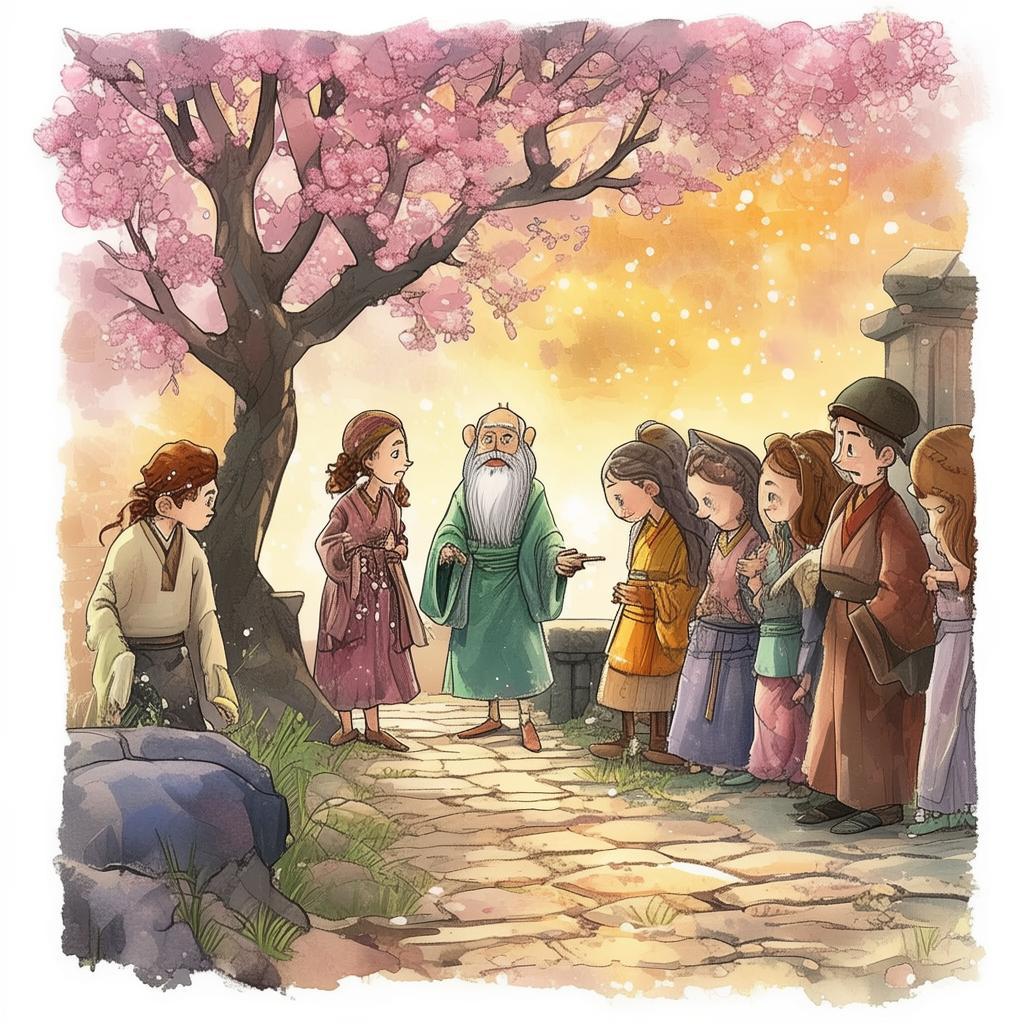
As the seeds were sent away, the villagers felt a sense of dread. They knew that the fields would not be kind to them that year. But they also knew that they had made a decision based on the needs of the community, not just their own.
The following spring, the neighboring village’s crops flourished, and the villagers of Liangshan were able to share in their prosperity. But the fields of Liangshan were barren, and the villagers were left to face the harsh reality of their decision.
Ming, who had seen the prophecy as a sign of fate, felt a deep sense of regret. He had always believed in the unity and strength of the community, but the village’s decision had shown him that sometimes, individual ambition could lead to betrayal.
Hua, however, was not without his own regrets. He had seen the prophecy as a challenge to his leadership, and he had risen to the occasion. But now, as the village faced hardship, he realized that his actions had not only hurt Ming but also the entire community.
The Straw Oracle had been right. The prophecy was not just a prediction of the future but a warning of the consequences of one’s actions. The village’s decision had led to a season of hardship, and the villagers were left to question their choices.
In the end, it was Ming who found the strength to stand up against the village’s despair. He reminded the people of the prophecy and the wisdom of Grandpa Li. “We must not let our ambition blind us,” he said. “We must come together and support each other, as the fields have always supported us.”
The villagers listened, and slowly, they began to mend their ways. They shared their crops, and together, they faced the challenges of the season. Though the harvest was not as bountiful as in years past, the community was stronger than ever.
The Straw Oracle had served its purpose. It had not only predicted the future but had also guided the villagers to a deeper understanding of their own values and the importance of unity.
And so, in the heart of the fields, the village of Liangshan learned a valuable lesson. The prophecy was not just a warning but a reminder of the power of community, the importance of humility, and the wisdom of listening to the whispers of the earth.
✨ Original Statement ✨
All articles published on this website (including but not limited to text, images, videos, and other content) are original or authorized for reposting and are protected by relevant laws. Without the explicit written permission of this website, no individual or organization may copy, modify, repost, or use the content for commercial purposes.
If you need to quote or cooperate, please contact this site for authorization. We reserve the right to pursue legal responsibility for any unauthorized use.
Hereby declared.
